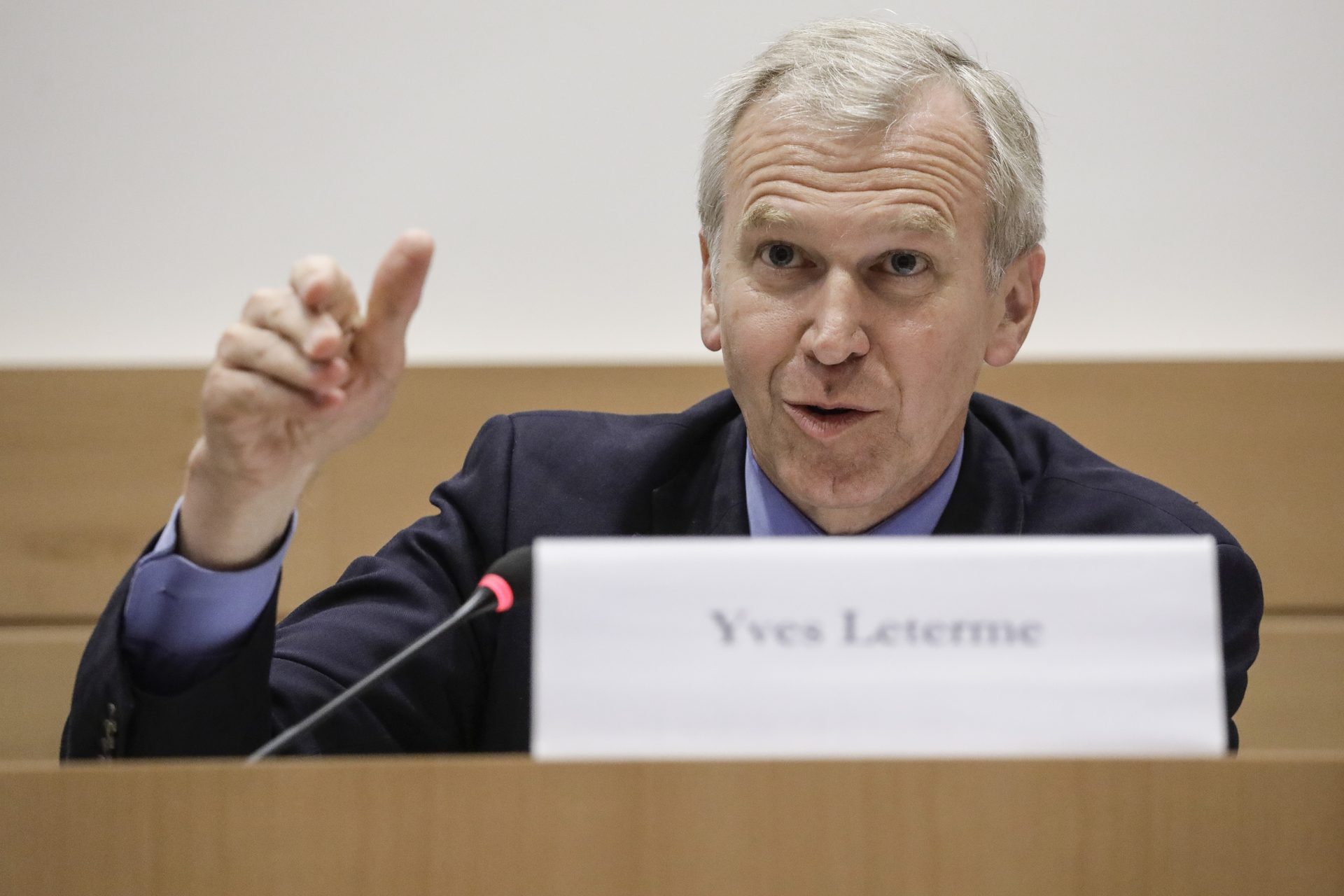Belgium's issuance of special one-year government bonds has polarised reactions among economic analysts, with some describing the sale as a "master stroke" and others as a "dangerous" initiative that could ultimately threaten the survival of smaller banks.
By Friday afternoon, €22.3 billion of the so-called Van Peteghem bonds (named after Finance Minister Vincent Van Peteghem) had been purchased despite only going on sale on Thursday last week.
By design, the bonds offer an attractive alternative to the savings rates currently offered by Belgian banks. Indeed, Van Peteghem himself previously noted that the bonds' main purpose is to "boost competition and encourage banks to raise interest rates".
In an interview with Le Soir, former Belgian Prime Minister Yves Leterme claimed that high demand for the bonds proves that their sale was "an excellent initiative" that will form the legacy of Van Peteghem's time in office.

Former Belgian Prime Minister Yves Leterme. Credit: Belga / Thierry Roge
"It is a masterstroke," Leterme said. "[Van Peteghem] managed to achieve his goal, not only at the quantitative level but at the level of awareness in the minds of the banks."
Similarly, one financial executive told De Tijd that banks' earlier prediction that savers would not be tempted to buy the bonds has proven completely false: "The banks have gambled that Van Peteghem's initiative would not be able to lure away the traditionally few mobile savers, but they have lost."
'Crossing the pain threshold'
Other analysts however expressed concern at the fact that many of the purchases were made with funds withdrawn from traditional savings accounts – thereby raising the prospect that some commercial institutions could soon face an unprecedented liquidity crisis.
One executive at one of Belgium's smaller banks told De Tijd that his institution had "already crossed its pain threshold" by hiking savings rates to record levels in order to avoid "too many deposits flowing away".
"Players like us are also more vulnerable because we are often the second bank for our customers," the person said. "Van Peteghem is playing a dangerous game because if a bank runs into liquidity problems, it risks a domino effect."

Eyes on the prize: Finance Minister Vincent Van Peteghem. Credit: Belga / Eric Lalmand
Influential newspaper columnist Peter De Groote also compared the government's initiative to a "boomerang" which "looks beautiful when it goes up but soon turns around and comes flying back again".
In addition to highlighting the "small, but not negligible risk that a bank will get into trouble because too much savings will leak out too quickly", De Groote noted that the bonds' high yields are a cost that might ultimately have to be borne by Belgian citizens.
"The government is borrowing with the bond for a substantial amount for a shorter period than it could," he wrote. "If it has to refinance itself more expensively in a year, that extra bill will be silently spread across all taxpayers."
Do bonds make the difference?
Analysts were similarly torn on the issue of whether the bonds will ultimately achieve their main objective – namely, encouraging Belgium's commercial banks to hike their savings rates.
Speaking to De Morgen, Assistant Professor of Finance at KU Leuven Gertjan Verdickt said that he could easily envision banks increasing their rates in the near future. "I wouldn't be surprised if one big bank raises interest rates soon, and then the others follow quickly," he noted.
Related News
- 'We are getting closer': ECB hikes interest rates to record high
- 'Well above expectations': Van Peteghem bond sales hit €9 billion
However, other experts argued that even if banks did eventually increase their rates, this would likely only be a consequence of European Central Bank (EBC) policy rather than the bonds.
"Savings rates may increase in the near future," one banker said. "But that is the usual delayed reaction to the ECB's higher policy rate. The government bond saga will not encourage the big banks to increase their savings rates."

